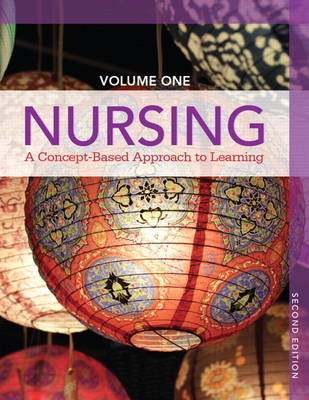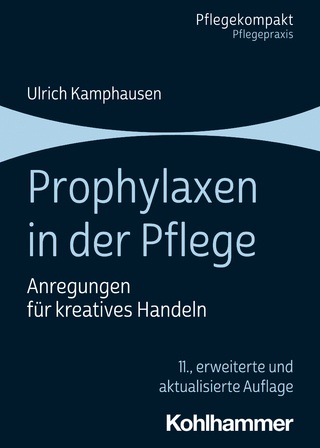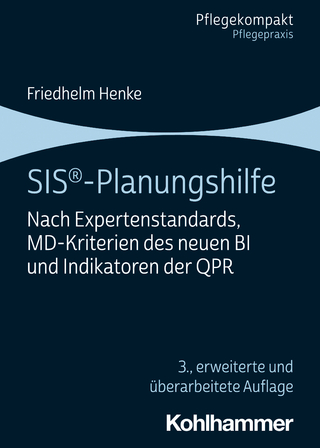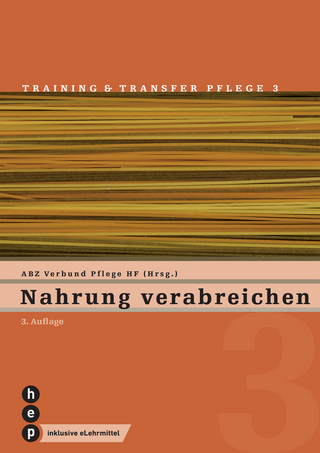
Nursing
Pearson (Verlag)
978-0-13-293426-8 (ISBN)
- Titel ist leider vergriffen;
keine Neuauflage - Artikel merken
Today, nurses must be able to transfer their knowledge to new situations, and stay current with new disorders, treatments, and evidence-based practice. Nursing: A Concept–Based Approach to Learning, Volume I, Second Edition will help them achieve all these goals. Its concept-based approach requires students to participate actively, assume more responsibility for their knowledge, integrate concepts, apply information, and use clinical reasoning. Instead of memorizing thousands of alterations, students gain in-depth knowledge of selected alterations, and learn how to apply that knowledge as new challenges and client presentations come their way. The first of two volumes, this fully-updated Volume I focuses on 21 crucial biophysical concepts: acid-base balance; cellular regulation; comfort; digestion; elimination; fluids/electrolytes; health, wellness, and illness; immunity; infection; inflammation; intracranial regulation; metabolism; mobility; nutrition; oxygenation; perfusion; perioperative care; sensory perception; sexuality; thermoregulation, and tissue integrity. These concepts are illuminated with nearly 100 exemplars covering the entire lifespan.
The second edition of Nursing: A Concept-based Approach to Learning has a much more nationally-based focused and was developed through collaboration with nurse educators across the country. In addition to reviewers from more than twenty twenty states, we convened a group of nurse educators from both BSN and ADN programs from all regions of the country. These Concepts Advisory Panel members are: Michelle Byrne, PhD, RN, CNE, CNORDr. Byrne is a professor of nursing at University of West Georgia and teaches nursing education in both the Masters and Doctoral programs. She previously directed the Master of Science in Nursing Education Program at University of North Georgia. Dr. Byrne’s expertise is in the role development of nurse educators addressing concept-based curricula, innovative instructional methods, and pedagogical research. Her prior research examined and exposed racial bias in nursing fundamental textbooks. The Byrne Guide for Cultural Inclusion was created to assist faculty in raising their awareness of omissions and stereotypes in their teaching materials. She has demonstrated leadership with curricular and instructional innovation in nursing education and integrates concepts of information literacy and models of cultural competence in assisting faculty in reducing bias in their teaching practices. Her clinical experience was in perioperative nursing and she has published extensively and served on the AORN Journal Editorial Board. She has served as National President for Competency & Credentialing Institute and is currently on the CNE Commission for National League for Nursing. Dr. Byrne is a strong advocate for continuing competency in nursing. She enjoys teaching workshops addressing clinical and academic educator competencies, as well as diversity issues. Barbara Callahan, MEd, RN, NCC, CHSEBarbara Callahan is currently an Associate Degree Nursing Lead Instructor and coordinates simulation lab and clinical throughout the nursing curriculum at Lenoir Community College in Kinston, North Carolina. Her clinical background is concentrated in critical care and emergency care. As a Nurse Educator, she has been the North Carolina State Training and Education Coordinator with the North Carolina Public Health Office of Preparedness and Response, the Continuing Education Coordinator for the Southwest Georgia AHEC, a Critical Care Transport clinician and the educator for a network of hospitals in southwest Georgia, and the Hospital Education Coordinator for the Medical Nursing Division at the University of Alabama Hospital. As a Nurse Manager, she has provided leadership for a Medical/Surgical Department, an Emergency Department, and a Respiratory Intensive Care Unit. She maintains licensure/certification as a professional mental health counselor. As a speaker, she has provided a variety of presentations at state, regional, and local conferences in Florida, Virginia, Alabama, Georgia, and North Carolina. She has participated in research projects targeting quality improvement of programs available for ongoing continuing education and nurses returning to active practice. Through pairing imagination and creativity with simulation technology, she has developed and implemented an assortment of educational activities and clinical experiences for nursing students including a simulation clinical site for all levels of students each semester, an emergency shelter site exercise, and a Within Prime Time rapid recognition and response program. Karen Carlson, PhD, RNDr. Carlson completed her baccalaureate degree from The University of Wisconsin–Milwaukee, her master’s degree in parent-child nursing with a functional area in nursing education from The University of New Mexico, and her Ph.D. in parent-child nursing research from The University of Texas at Austin. Dr. Carlson’s entire clinical background is in child health in the community, on general units, in intensive care, and as a clinical unit-based educator. In addition, she has been in hospital administration and was a nurse recruiter with positions in Wisconsin, Arizona, and New Mexico. She spent twenty-six years teaching in baccalaureate and higher degree programs. She was Interim Dean and Professor at the University of New Mexico College of Nursing when their concept-based curriculum was introduced. Dr. Carlson is now a Professor Emeritus but continues to consult on concept-based education. In her free time, Dr. Carlson loves to read and travel the world, and she is an avid scuba diver. Linda Daley, PhD, RN, ANEFDr. Daley is a Professor of Clinical Nursing and Assistant Dean for Prelicensure Programs and was recently honored as one of the NLN's 2013 Academy of Nursing Education Fellows. Dr. Daley’s presentations and publications have focused on establishing inter-professional initiatives and interdisciplinary education in order to improve patient care; multidisciplinary simulations; innovative models of clinical teaching; clinical practice partnerships between senior and entry level nursing students; and using virtual hospital units to teach students the skills of prioritization and delegation. She is currently involved with three grants involving interdisciplinary work, community work with vulnerable populations, and community health care worker training programs. Dr. Daley's areas of expertise include faculty mentoring, leadership/professional development, interdisciplinary approaches to enhance learning outcomes, new models of clinical teaching, practice partnerships, instructional strategies in teaching, curriculum, critical thinking strategies, evaluation of simulated learning, experiential learning strategies, NCLEX-RN readiness, legal/expert witness testimony for nursing practice, and cardiac care. Kathy Magorian, EdD, RNDr. Magorian received her undergraduate degree in nursing at Mt. Marty College in Yankton, her Master’s of Science in Nursing Education at the University of Southern Indiana, Evansville, and her doctoral degree in adult and higher education at the University of South Dakota. A nurse educator since 2001, Dr. Magorian has clinical experience in a variety of areas which include medical/surgical nursing, geriatric and geriatric mental health, acute adult mental health, and interventional pain management. As Director for the Baccalaureate of Science in Nursing program at the University of South Dakota, Dr. Magorian has been instrumental in curricular revision and continues to provide direction and leadership in the development and implementation of concept-based curriculum and teaching strategies. Pamela Phillips, PhD, RNDr. Phillips is the Distance Learning Coordinator of Blue Ridge Community College's first-year ADN program. Her eclectic background in journalism and nursing education provides a unique vantage point from which she approaches educating nursing students. Dr. Phillips’s areas of expertise include adult education and distance learning, nursing curriculum design, and emerging educational technologies. She has published articles including "Wikis and Chatrooms: Online Collaborative Projects for Nursing Students." Dr. Phillips’s doctoral research focused on victimization, domestic violence in the college setting, and post-traumatic stress disorder. Sue Wilhelm, PhD, RNDr. Wilhelm is an Assistant Professor and Assistant Dean in the University of Nebraska Medical Center College of Nursing, West Nebraska Division, where she has been a faculty member since 1990. She received her bachelor’s degree in nursing from the University of Northern Colorado and her master’s and doctoral degrees from the University of Wyoming. Dr. Wilhelm’s clinical background includes all areas of obstetrics. She has held nursing positions in several states in the mid-western region, and she conducts breastfeeding research in rural areas. Dr. Wilhelm has taught the under-graduate Maternal-Newborn and Women’s Health course. She also lectures in the master’s course in the Neonatal Nurse Practitioner program, and in the theory course and the family unit in the RN-BSN program. In addition, she has developed inter-disciplinary simulations for Maternity-Pediatrics. A strong advocate for concept-based learning, Dr. Wilhelm lent her considerable Maternity-Child Nursing and inter-disciplinary expertise to ensure that the second edition of Nursing: A Concept-based Approach to Learning effectively threaded these themes throughout its content.
&>
Module 1: Acid-Base Balance
Module 2: Cellular Regulation
Module 3: Comfort
Module 4: Digestion
Module 5: Elimination
Module 6: Fluids and Electrolytes
Module 7: Health, Wellness, and Illness
Module 8: Immunity
Module 9: Infection
Module 10: Inflammation
Module 11: Intracranial Regulation
Module 12: Metabolism
Module 13: Mobility
Module 14: Nutrition
Module 15: Oxygenation
Module 16: Perfusion
Module 17: Perioperative Care
Module 18: Sensory Perception
Module 19: Sexuality
Module 20: Thermoregulation
Module 21: Tissue Integrity
CONSISTENT PEDAGOGY FOR IMPROVED KNOWLEDGE RETENTION: The textbook series has an updated concept-level template that presents each concept and exemplar in the same manner:
Each CONCEPT follows the following template:
Normal Presentation - Developmental Considerations - Alterations - Related Concepts - Physical Assessment - Diagnostic Tests - Interventions & Therapies
Each EXEMPLAR follows the following template:
Overview - Pathophysiology and Etiology - Clinical Manifestations and Therapies - Nursing Process - Nursing Care Plan - Relate and Reflect
For a full list of Concepts and Exemplars in the 2nd edition of, please click HERE
| Sprache | englisch |
|---|---|
| Maße | 216 x 276 mm |
| Gewicht | 3484 g |
| Themenwelt | Medizin / Pharmazie ► Pflege |
| ISBN-10 | 0-13-293426-4 / 0132934264 |
| ISBN-13 | 978-0-13-293426-8 / 9780132934268 |
| Zustand | Neuware |
| Informationen gemäß Produktsicherheitsverordnung (GPSR) | |
| Haben Sie eine Frage zum Produkt? |
aus dem Bereich


